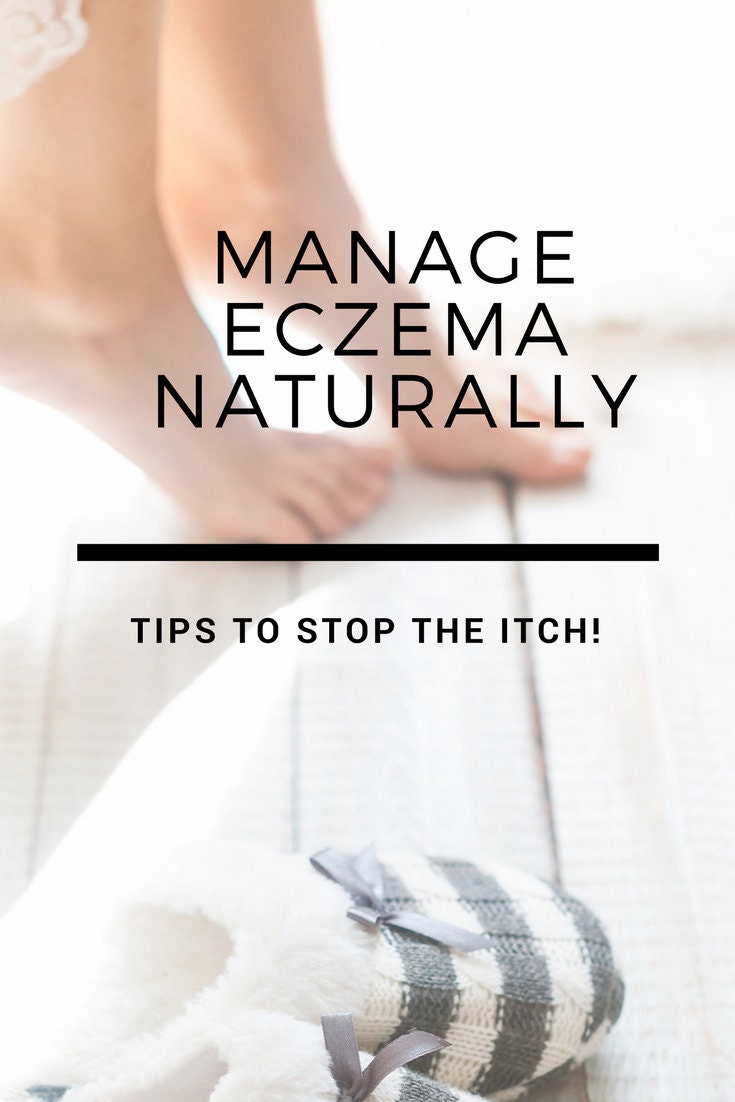Itch, scratch, itch some more. Sound familiar? If so, welcome to the club! Eczema and dermatitis is a chronic problem for loads of people – including myself. It affects a staggering 35 million Americans: 1-3% of adults, and 10-20% of children! Chances are, if you don't have eczema, you know someone that does. Until very recently, it was assumed that eczema was just a topical (but highly uncomfortable) skin problem- but evidence is pointing towards an immune response in the body.
Most common is atopic eczema, which is thought to be a genetic and immune response triggered by allergens and/or stress. I suffered for years from this type of eczema too. Unfortunately, there isn't a cure per-se, but there are a few things I’ve learned that I hope will help you or a loved one is suffering from eczema.
1. Follow an elimination diet. Wheat, eggs, dairy, nightshades (these include eggplant and tomato) and sugar seem to aggravate eczema. If you haven’t been allergy tested it might be a good idea to eliminate one of the above food groups for 2-4 weeks. I know how hard eliminating wheat can be- it’s daunting because it seems to be in Every.Single.Thing. But I’ve done it and it’s worth the aggravation at the grocery store. Trust and remember why you’re eliminating the food group. Keep a food diary. Note when/if you get itchy or stressed. Gradually re-introduce food groups back into your diet after several weeks. If you begin having flare-ups regularly, you’ll begin to know what foods negatively affect your system.
2. Consider a probiotic regimen… but more importantly, start with prebiotics. If your GI system is wacked out (leaky gut) this can contribute to autoimmune issues including eczema. Prebiotics help break down the food in your system and repair any GI damage. Without a good healthy gut, no amount of probiotics will work well. I didn’t notice a difference in my GI health until I added prebiotics. The bloated tummy I experienced from starting probiotics went away, I had more energy and my skin started to clear.
3. Keep skin hydrated. I use a humidifier in my bedroom at night, drink tons of water, take an EFA (essential fatty acid) supplement and moisturize like crazy. When my skin is extra dry I also use the herbal eczema cream I make. It was the first product I ever created (for myself) and has since helped so many little ones and adults stop itching, reduce inflammation and begin healing their skin. It’s my go to little miracle worker!
4. Toss out harsh detergents and soaps that use SLS (Sodium Laurel Sulfate), fragrance, dye, parabens or synthetics. Use natural products as much as possible! I make my own laundry detergent because even the natural detergents are too harsh for my skin. SLS is an ingredient that makes soap “foamy” and is in everything from shampoo to toothpaste! It’s also a major culprit in skin flares. Toss that stuff out if you can and read labels- always! Get in the habit. It takes work upfront but after a few weeks it gets easier and you’ll be more informed!
5. De-Stress and use your intuition. If you think a food or product isn’t sitting right with your body, go with that. Learn to listen to subtle changes in your body. Try to meditate to de-stress. One of my favorite learning tools for meditation is the Calm app. It really helped to kickstart my mindfulness practice.
I hope this helps you with your skin issues as much as it has helped me! If you have any questions, feel free to reach out! I'm always happy to help.
